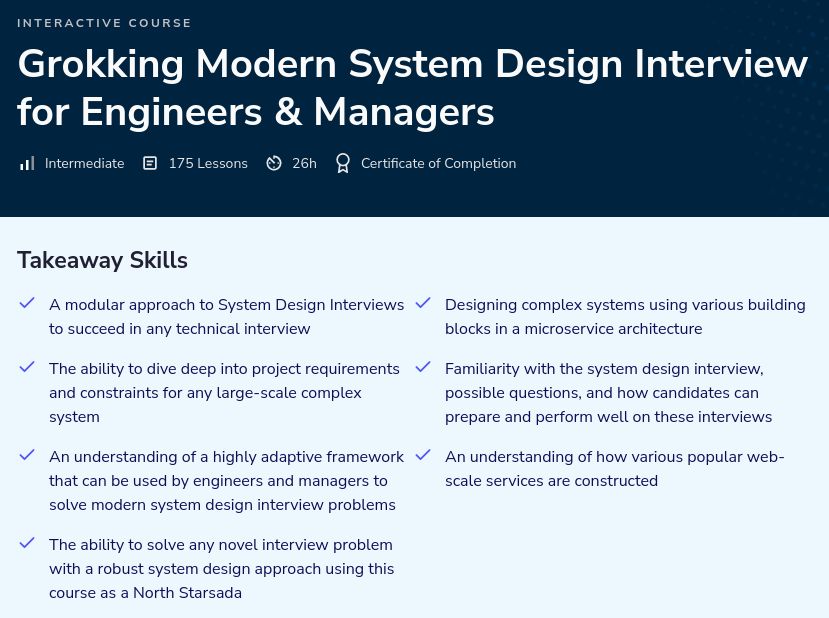 Welcome to our comprehensive guide on software architecture courses! In today’s fast-paced technological landscape, software architecture plays a crucial role in building robust, scalable, and maintainable software systems. Whether you are an aspiring software architect or a seasoned professional looking to upgrade your skills, this article is your go-to resource.
Welcome to our comprehensive guide on software architecture courses! In today’s fast-paced technological landscape, software architecture plays a crucial role in building robust, scalable, and maintainable software systems. Whether you are an aspiring software architect or a seasoned professional looking to upgrade your skills, this article is your go-to resource.
We will explore various types of software architecture courses, from online platforms to university programs, helping you find the perfect learning path to enhance your architectural prowess. Get ready to embark on a knowledge-filled journey and unlock the key to designing exceptional software solutions.
What Is Software Architecture?
Software architecture describes the essential parts that make up a piece of software and how they work together. A software’s architectural design serves as the whole system’s blueprint. It forms networked systems that leverage expansive open-source software and tools.
They are responsible for managing the complete software design. The whole design and architecture of a system are the responsibility of a software architect, making this position one that requires careful management.
What is Software Architecture Used For?

Although it is essential for the creation of software, software architecture serves other purposes as well. Let’s go over a few of the most important uses for software architecture.
- Laying the groundwork. Software architecture aids in laying the groundwork for organizing your software.
- Setting targets. Software architecture will provide a clearer understanding of the general path you want to go for your firm. Doing this makes data more scalable and clean.
- Saving cash. Software architecture aids in assessing and finding areas where you can make modifications. This can reduce expenses and save on maintenance because it makes creating code more cleaner. risk control. Managing hazards more effectively and improving readability are both benefits of simpler code.
Best Software Architecture Courses
1. Grokking the System Design Interview

You can use this course to understand how to approach System design in general in addition to preparing you for the System design interview.
One of the first courses that thoroughly explain the Large Scale Distributed System Design issues is Grokking, the System Design Interview. There are many things you may learn from this course even if you have already worked on distributed systems.
This course’s authors have provided design options so that you can compare them, grasp the requirements, and find the best strategy to solve the issue at hand. They also include the pros and downsides to these options. Additionally, they take care not to offer a solution with enough specificity for a 45-minute conversation.
2. Mastering the System Design Interview by Frank Kane (Ex Amazon Hiring Manager)

Another excellent course to master the subject of system design for coding interviews is Mastering the System Design Interview. You will practice going through real-world system design interview questions in this top System design interview course from Udemy to discover important system design principles and hints.
These are the main abilities you will master in this 5-hour training on how to succeed in a system design interview:
- Selecting suitable algorithms and data structures for system architectures
- How to use horizontal scaling in databases, analytics, data storage, and transactions.
- How to format your interview answers for the best results how to ask the proper questions and tackle system design issues from the appropriate perspectives.
- How to handle evaluations on your soft skills during an interview
- How to use Cloud computing, Apache Spark, and Big Data.
3. Software Architecture & Technology of Large-Scale Systems [Udemy]
![Software Architecture & Technology of Large-Scale Systems [Udemy]](https://asoftclick.net/wp-content/uploads/2023/05/Screenshot-2023-05-16-1.59.52-PM.png)
It takes a lot of experience and knowledge to build a distributed large-scale system with high performance, scalability, availability, and security. This makes making large system architecture a skill.
There is a great demand for software architects who can create highly efficient, durable systems that can manage millions of users and events. The only method to master this talent until a few years ago was to actually do it, which wasn’t ideal because not everyone gets the chance, and learning via failure is a slow process.
While nothing can ever fully substitute for actual experience, you may learn a lot more by first doing, then studying, which is where this course on software architecture might be helpful. You will learn how to construct distributed and large-scale systems in this course.
You will start with a 3-tier application architecture before moving on to a more complex one. Also, you will gain knowledge of significant non-functional requirements along the way. This includes scalability, security, logging, traceability, monitoring, and robustness.
4. Web Application & Software Architecture 101

Educative offers this fantastic course on software architecture. Educative is a text-based, interactive online learning platform. This course is a 101 in software architecture and web applications, as the course title suggests. It guides you through each stage of the various elements & ideas required in developing the architecture of a web application.
It covers the principles of data flow in a web application and a variety of architectural approaches, including client-server, peer-to-peer decentralized architecture, microservices, and more. You can also learn the foundations of system design.
Beginner programmers and those who are actively seeking employment (especially full-stack developers) will find the knowledge of software architecture to be of great use.
5. Software Architecture on Coursera

Together with Udemy and Pluralsight, Coursera is one of the well-known websites when it comes to online education. This is one of its top classes, along with some others on software architecture, algorithms, and machine learning.
You will learn in this course how to visually depict a software architecture using tools like UML. UML is crucial for explaining the architecture to stakeholders and the engineers who will execute it. Additionally, the course will cover some of the common architectures, along with their benefits and drawbacks. The course also covers how to assess designs, qualities of good architecture, and ways to enhance architecture.
6. Pragmatic System Design [Udemy Course]
![Pragmatic System Design [Udemy Course]](https://asoftclick.net/wp-content/uploads/2023/05/Screenshot-2023-05-16-2.06.09-PM.png)
This is yet another fantastic course on Udemy to study crucial System Design topics and get ready for a System Design interview. You will get knowledge on everything, including how to prepare for system design interviews and how to create actual systems. This course’s gradual design also facilitates learning.
You will first master the fundamental principles and elements of system design before learning a foolproof, step-by-step method for solving any system design issue. These processes can create all the case studies. The design of scalable systems, fault tolerance, high availability, and modular development are among the many topics you will study.
7. Software Design and Architecture Specialization

Another excellent course to learn software design and architecture is this one. Kenny Wong is the instructor and the University of Alberta is the provider.
You can learn object-oriented design, design patterns, software architecture, and service-oriented architecture (SOA). After finishing the course, you will receive a certificate for the specialization, which also includes a project. The course will teach science underpinning software design and architecture as part of this specialization, which is its best feature.
After this course, It would be much simpler to discuss your idea with other programmers and stakeholders once you are aware of the pertinent patterns and concepts. Additionally, you will learn to analyze software and pieces of code from a design standpoint.
8. How To Become An Outstanding Solution Architect

This is yet another outstanding course that every programmer who wants to become a software architect must take. Your instructor, Mark Farragher, will provide you all the knowledge and abilities you need to excel as a solution architect in this course.
Along with teaching you how to produce a great architectural design, he will also demonstrate all the soft skills you need to flourish in this position and leave an impact on your coworkers. This is crucial because you’ll be speaking a lot and potentially interacting with the majority of the staff, including the CEO and CTO.
9. Data Structures and Software Design by edX

In this course, which is a component of the CS Essentials for Software Development Professional Certificate program, you will learn how to create “good” software that accurately represents and organizes data, is simple to maintain, and is of a high caliber, which will advance your skills.
You will learn how to create high-quality software designs from a collection of requirements as well as how to produce effective code that is simple to read, comprehend, and alter.
Data structures and program design are two very important skills that may be learned in this excellent free course. The course lasts four weeks and needs eight to ten hours of work each week. There is a certificate available as well, but it costs money.
10. Basics of Software Architecture & Design Patterns in Java [Udemy]
![Basics of Software Architecture & Design Patterns in Java [Udemy]](https://asoftclick.net/wp-content/uploads/2023/05/Screenshot-2023-05-16-2.10.31-PM.png)
Compared to the previous two sessions, this one is more basic and covers topics like software architecture and design patterns. These are a bit more tangible than abstract design.
For Java developers, the course’s use of the Java programming language to address issues is fantastic. The theoretical underpinnings are language-neutral and helpful for all programmers. Solid principles and design patterns, which are essential for any sound architecture and reliable application, are also covered.
How Long Does It Take to Learn Software Architecture?
Software architecture is a talent that often requires months of practice to learn. If you want to perfect it, you need to budget at least six months. If you are unfamiliar with software design and architecture, it can even take a little longer.
The correct study resources, books, and courses, which we shall discuss in this guide, can help you advance more quickly. It’s up to you to take the initiative to put in the effort and practice.
FAQs
What is software architecture courses?
Software architecture courses are essentially online tutorials. They show students how to use design concepts, patterns, and architectures to build reusable and adaptable software systems and applications.
What qualifications do you need to be a software architect?
To be a software architect, one will need a bachelor’s degree in computer engineering or a closely related field to work as a software architect. Coding expertise and familiarity with a variety of software development topics are also essential.
A software architect should have a thorough understanding of software development concepts. These include contemporary ideas like DevOps, the Agile framework, and system design.
How should I learn software architecture and design?
Doing architecture and design is the best method to learn about them. It is important to remember that teams develop enterprise apps, rather than by individuals. The best option you have is to join a team that creates enterprise-level applications with some more seasoned individuals.
You can support this by learning a few things on your own, including the following:
- Languages for creating and modeling software. There are a lot of materials accessible, and UML and SysML are frequently discussed. IDEF, Architecture Description Language, ER diagrams, and Business Process Modeling Notation are some of the other modeling languages available. Working with a large team will require you to be able to communicate with them. Using pictures to explain complicated concepts is a fantastic method to do this.
- Speaking and writing. Understanding design and modeling languages will help you get started, but you’ll also need to be able to communicate your thoughts. It’s crucial to be able to communicate in English and other widely spoken languages in your area. Writing, speaking, and presenting are all included. You’ll need to be able to speak to the development team in technical terms and to users and clients in business terms.
- Patterns. You claim that you don’t wish to study concrete patterns, but you might consider doing so if doing so will help you better comprehend typical difficulties and earlier answers to those problems. Although you shouldn’t actively strive to employ patterns, being aware of them might be beneficial.
What are the certificates for a software architect?
It’s not always necessary to get certificates to succeed in the IT industry. Obtaining a degree in an IT-related field or entering the workforce right away with IT experience both serve as entrance qualifications for the IT sector.





